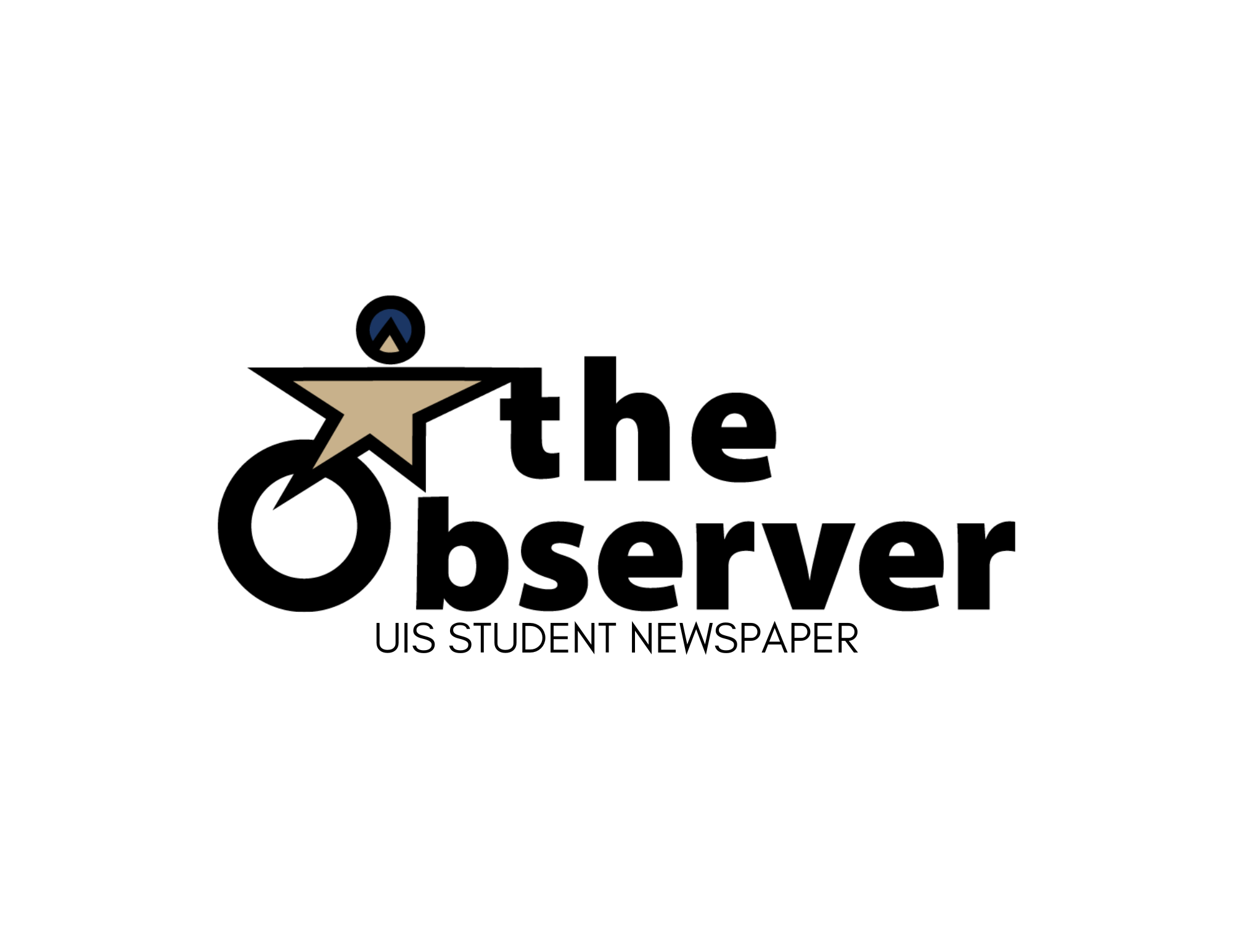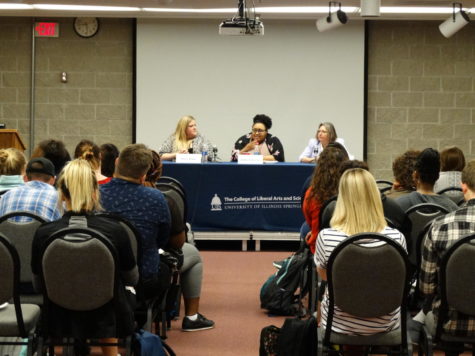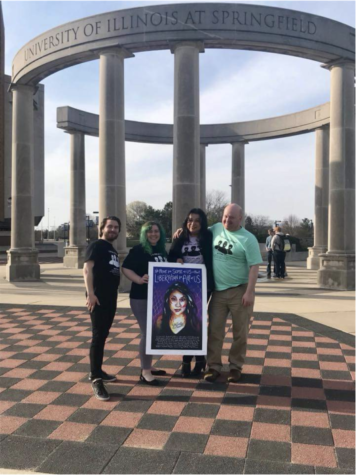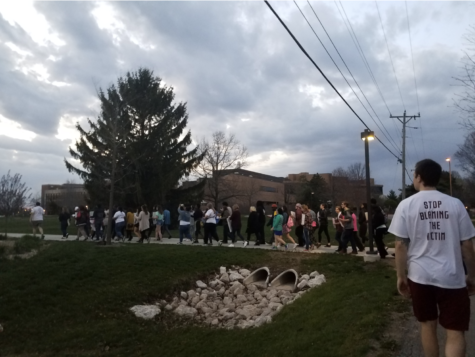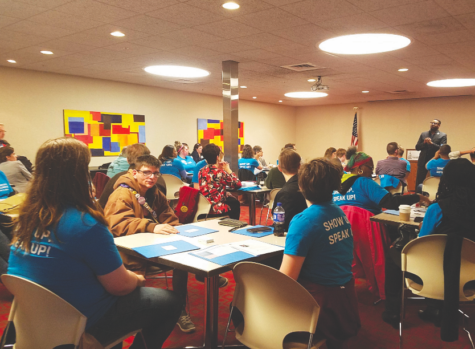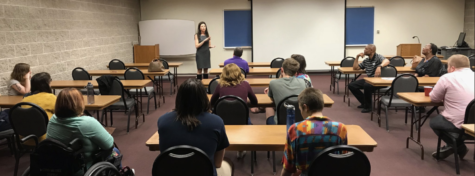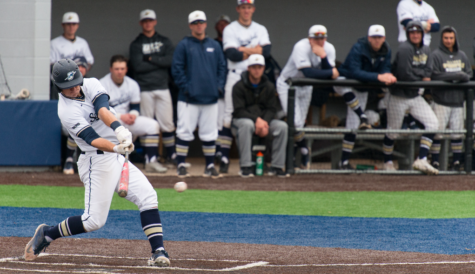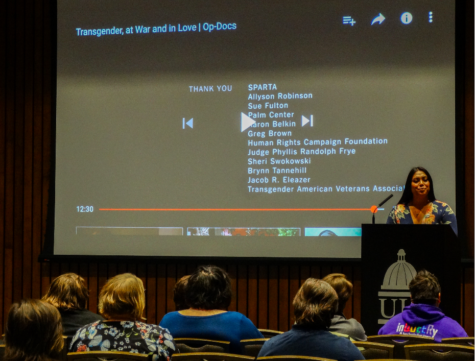Trump has First Amendment rights-but what does that mean for democracy
March 30, 2016
Donald Trump’s recent political rallies in St. Louis and Chicago have sparked protests and violence between Trump supporters and opponents.
Many of Trump’s rallies have been the site of protests, resulting in the disruption of his speeches. The protesters are thrown out of the rallies, and often Trump himself calls for their removal by security or police.
Trump supporters and some legal scholars contend that these protests have infringed on Trump’s freedom of speech, and that Trump has the right to express his ideas through political rallies without disruption and interference.
However, given Trump’s visible and widespread voice, he has powerful First Amendment rights, but in terms of democracy the opposition has a right to voice its concerns and views as well.
In a Huffington Post blog post, University of Chicago law professor Geoffrey R. Stone stated that “Donald Trump is a private citizen. The First Amendment, like all provisions of the Constitution, restricts only the actions of government.
“Thus, just as a private person can constitutionally host a party that includes only his friends, Donald Trump can constitutionally hold a rally that includes only his supporters.”
This means that uninvited and unwanted ‘guests’ can be lawfully removed from the rally. However, we are not talking about a private house party here; we are talking about a political event, which in fact makes it a public event.
A strong legal argument in terms of the First Amendment can be made here: Trump has the right to speak about his ideas, throw out all opposition, and even use the police to do so.
Stone also stated that “the First Amendment does not give individuals a right to disrupt the freedom of other individuals to hold peaceful political events.”
But this issue should not be looked at in terms of constitutional legality, but rather through democracy and politics.
People are concerned with the future of the country and have a right to voice their opposition and concerns, which is what democracy is.
Dr. Richard Gilman-Opalsky, a UIS associate professor of political science, explained that free speech is about being heard in a society: “We need to talk about oppositional forces, which is what free speech rights were designed for; not for the already dominant voices. Free speech has always been about the rights of the subordinated and invisible audience; that is not Donald Trump.”
For democracy and the interest of our country, we need to hear the substantive content from the people that disrupt Trump’s rallies.
By legally arguing in some way that Trump’s First Amendment rights are being infringed upon, the implications of democracy and people’s legitimate concerns are being ignored. Infringing upon free speech means it is either being diminished in some way or censored completely.
For Gilman-Opalsky, it is not the case that Trump is suffering from a lack of visibility because of the protests – or any reason, for that matter: “I find it absurd and almost a flawed question to ask about the protection of the free speech rights of a person whose voice is louder, more visible, and more widely heard than most anyone else in the country’s history.”
To say that Trump has the right to remove opposition from his rallies represents the silencing of democracy. Free speech was never intended for the dominant voices of society since they already possess the power. Free speech was for the weaker voices of society who need to express the concerns about the dominant forces in society.
Trump’s First Amendment rights are not being compromised by the protests and disruptions at his rallies; rather, when the oppositional voices are being silenced it is these people whose First Amendment rights are being compromised.
Trump’s voice, being that it is so powerful and widespread, is almost impossible to diminish or censor in any way. We already know his ideas and aspirations, so now we need to hear the opposition’s concerns with this presidential candidate.


